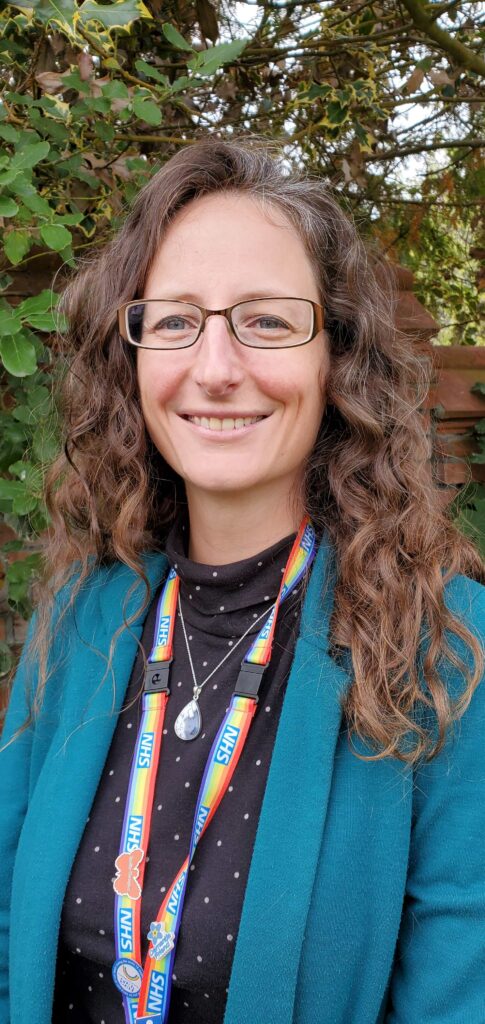Jules Alderson
Workforce Transformation Volunteering Programme Manager Norfolk and Waveney Integrated Care Board (ICB)
Jules Alderson is the Workforce Transformation Volunteering Programme Manager for Norfolk and Waveney Integrated Care Board. Inspired by a year of volunteering at Save the Children when she was 18 years old, Jules is a committed and passionate advocate for volunteering and the voluntary sector. With almost a decade of experience working in the voluntary sector before joining the NHS in 2019 Jules has extensive experience of volunteer management and is motivated by continual quality improvement whilst striving to keep the individual volunteer experience at the forefront of her work. Jules currently volunteers with the Norfolk Archaeological Trust as a Volunteer Site Warden at Caistor Roman Town.

July 2023 – Perspectives from three NNUH Volunteers: “The ladies who do”

In celebration of the fantastic work volunteers at the Norfolk and Norwich University Hospitals Trust (NNUH) undertake on a daily basis, the Voluntary Services Team held an informative event during Volunteers’ week to showcase their efforts. It provided a great opportunity to meet some of the volunteers and their volunteer co-ordinators to learn about the huge impact they have with both patients and staff.
Three of these volunteers, Barbara, Vida and Marion were kind enough to spare a few moments of their time to share details of their individual volunteering journeys with me. I was struck by the energy and compassion each of the ladies brought to their volunteering and by the end of the conversation I was looking forward to my retirement so that I could join their lovely team!
All three ladies started volunteering after they had taken retirement, with two of the coming back to the NNUH having worked there.
Barbara, a reception meet and greet volunteer, said: “I love the NNUH, so when I retired, I wanted to carry on that feeling of belonging.”
Marion, a discharge suite volunteer had worked for the NNUH for 20 years and found herself looking for something more to do after retirement. Marion said: “after just six months I thought of the ‘red waistcoat people’. I wanted to do something socially and do something outside of home. I had all the time in the world. What you do when you retire is, you do all the jobs you never get time to do when you work. You sort out your cupboards and things, have coffee with all the people you want and then you want something more to do.”
Vida, who is a Discharge Suite and Therapeutic Massage volunteer said her motivation to volunteer was rather different. Vida said: “I started volunteering because I had a medical phobia, and I wanted to overcome that. I like meeting people from different walks of life and I’ve always worked with people and I just wanted to carry on.”
Both Barbara and Marion started as Butterfly volunteers, individuals who provide support to patients at end of life. Activities that Butterflies might do include sitting quietly with a patient in their last days or hours, reading to them or holding their hand.
Barbara says of her time as a Butterfly volunteer: “it was interesting to hear the relatives of the person who was dying. I felt they always used to love the chance to talk about how ‘he used to do this and how he used to do that’ and it gave the family a chance to offload. They might want to show photos… ‘this was my mum two weeks ago.’ I got a lot out of helping the relatives and those patients who were at the end of their life.”
Marion believes that Butterfly volunteers play a vital role for those individuals who do not have family able to visit them in their final days. Marion added: “It’s just doing those lovely things that we’d all want. In our society, families are so spread these days it’s not always possible for family members to actually be there with their loved ones while they are dying and so it was just a beautiful role that came along.”
For Vida, her role as a massage volunteer enables her to provide a ‘human touch’ that patients may be missing during their stay on the wards. Vida explains that her role is so significant because “the interaction is about the person and not the reason that they are there. It is really important to remember how you might be as the person doing the hand massage, the only person who is touching the patient and talking to them as a person, and not as a medic or physio.”
Each of the ladies expressed that it isn’t just the patients and their families who benefit from the work of the NNUH volunteers, the volunteers themselves each have reasons to keep them coming back. Vida enjoys the opportunities to acquire new skills within her volunteering: “I like learning, I like to learn whatever new thing we are doing”.
Marion added: “a lady came up to a reception the other day to say thank you, it’s not why we do it, but you know you have helped someone, so it is nice to hear. Knowing that you have made a difference keeps me coming back”
For Barbara, the big appeal for her has been the social side of volunteering, she added: “We meet up for a coffee before we see patients. I’ve made a lot of friends, we call ourselves ‘the ladies who do’ so that we can talk and not just about volunteering.”
To find out more about the work of the NNUH volunteers or to apply to join the friendly team visit: http://80.6.88.110/getting-involved/volunteer-with-us/
